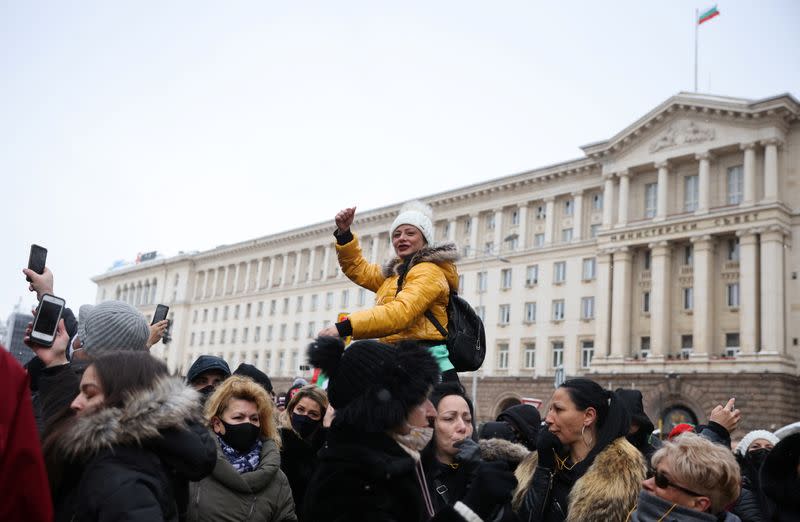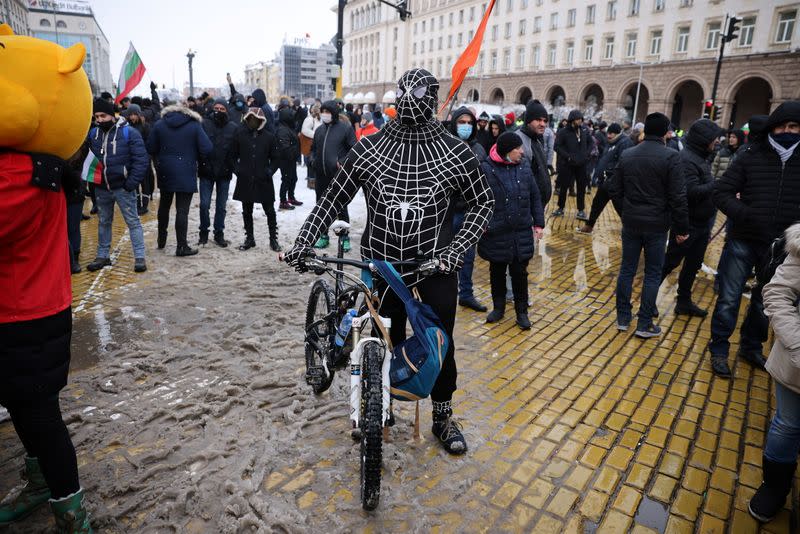Bulgarian restaurant, club owners in noisy protest at COVID closures
By Tsvetelia Tsolova
SOFIA (Reuters) - Hundreds of Bulgarian restaurant and club owners, waiters and bartenders protested on Wednesday in downtown Sofia against the government's decision to keep bistros, diners and cafes closed while easing other coronavirus restrictions.
About 1,500 people, clanging empty pots in freezing temperatures demonstrated in front of government buildings, urging Prime Minister Boyko Borissov to reconsider the closure of their outlets, to allow them to work and pay them delayed compensation.
Bulgaria, which has seen a fall in the number of coronavirus infections, has opted to reopen secondary schools, shopping malls and gyms from February, but decided to keep restaurants and cafes closed for a month longer.
Nightclubs may be allowed to open from the middle of March, if infection levels remain low, officials have said.
To help the struggling businesses, the government has allowed restaurants to offer take-away food. In late December it allowed diners at hotels to work at 50% of their capacity to help salvage some winter tourism revenues.
Many of the country's food and drink outlets, hard hit by closures since late November, complained about the lack of clarity over the criteria for closure or re-opening and accused the government of delaying compensation payments for months.
"We see two options: one is to work and the other is to get enough compensation for a closed business... There is no option to stay without any money. It is insulting," said Deyan Ivanov, 33-year-old club owner and employer of 10 people.
The prime minister said on Wednesday the restrictions have to stay for now to prevent a third wave of the virus in the Balkan country that could prompt a much tougher lockdown.
"We are easing the restrictions gradually, according to the numbers. I have explained that clearly. We hear them (the protesters) as well, that is why we have come up with different support schemes," Borissov told a government meeting.
(Reporting by Tsvetelia Tsolova; editing by Barbara Lewis)



